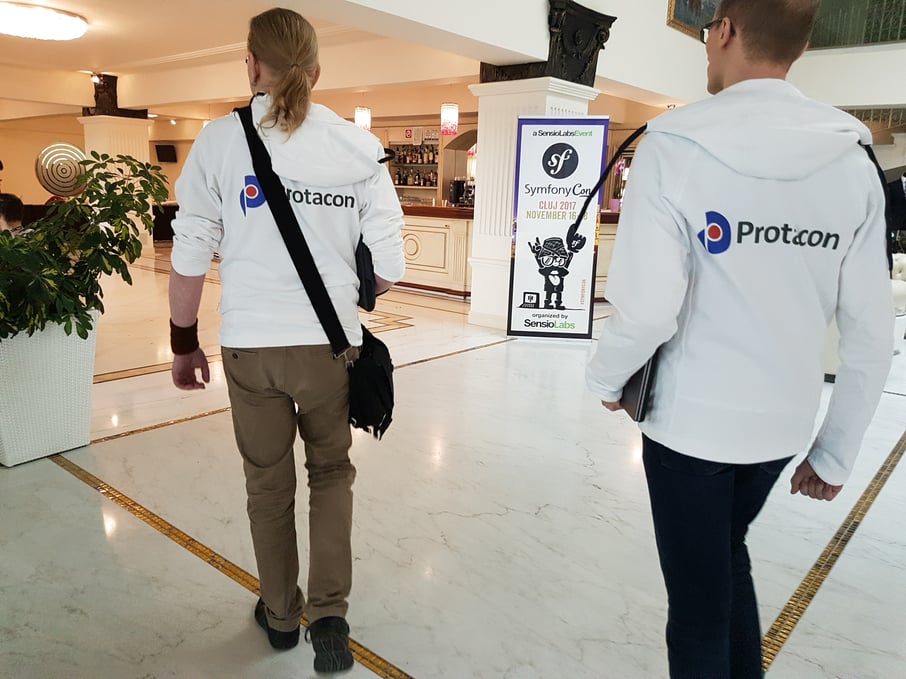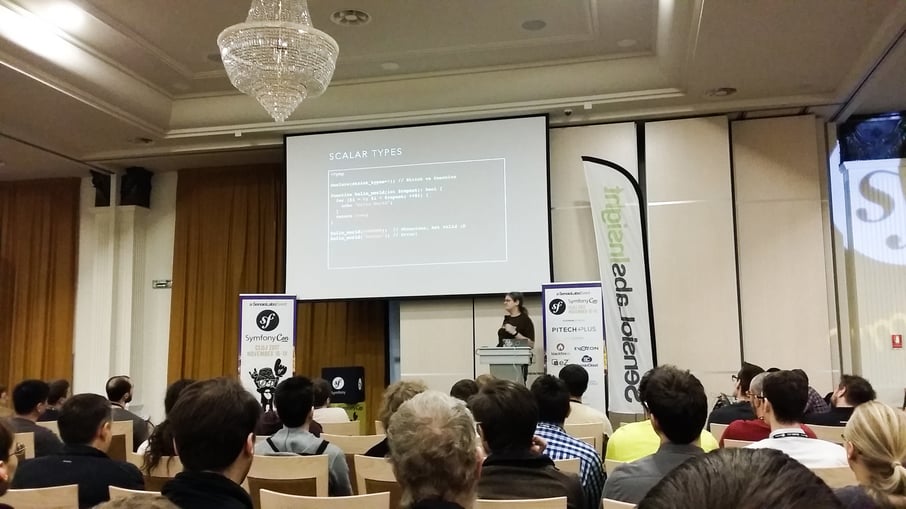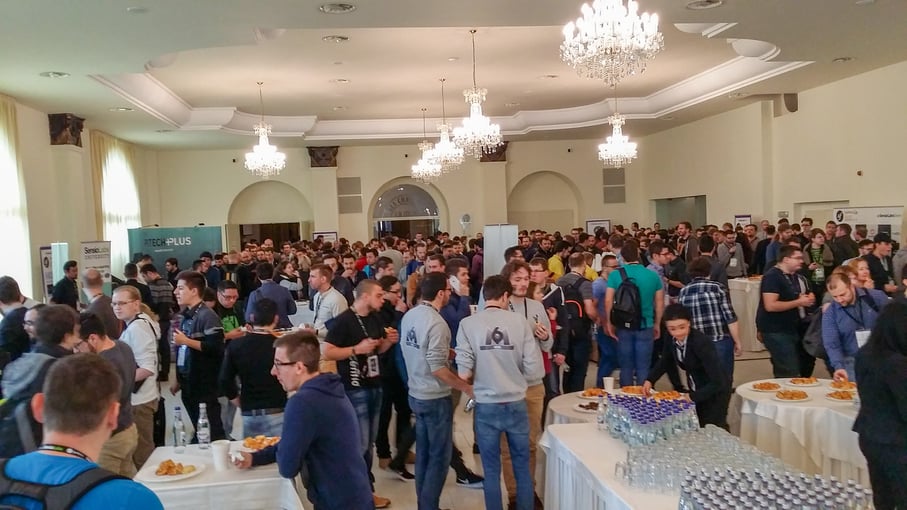SymfonyCon is an international annual event organised by SensioLabs, creator of the Symfony PHP framework. The purpose is to share information about Symfony’s new features, good development methods as well as its components and their ways of deployment. The event also includes expert presentations on the present state and future of PHP. The conference is a great opportunity for the Open Source community and software developers who use the framework in their projects to meet each other and exchange information.
When my colleague Tarmo asked me whether I would like to attend the SymfonyCon conference dealing with the Symfony PHP framework, I replied him: “Why not”. Indeed, I had already used this framework in a couple of projects because of its strong community and advanced techniques. An opportunity to meet other experts and exchange views was a chance not to be missed.
The SymfonyCon conference organised for the fifth time was held this year in Cluj-Napoca, Romania. More than 800 visitors from over 40 countries attended the conference during two days. The main topic was Symfony 4.0 published at the end of November and its new developments, presented by Symfony’s main developer Fabien Potencier.
What’s new in Symfony Version 4.0?
In Version 4.0, the use of Symfony was facilitated by changing the structure of the framework. The entire framework was partitioned in a new way: The user can select just the components that are necessary for the project instead of the whole framework. Individual components can be installed with Composer and are then configured in the framework by Composer’s Flex add-on.
The use of services, which earlier required manual configuration by developers, is now automatic and their deployment is easy with automated injection. Many improvements were made in the processing of configuration parameters, and they are now easy to load from environment variables. This facilitates particularly the use of containers and deployment in cloud platforms.
Many of these features were already included in Symfony Version 3.3, but in Version 4.0 the entire basis of the framework was taken in their direction. Upgrading to the latest version is relatively easy as long as the project is compatible with Version 3.3 or 3.4. I have already familiarised myself with the improvements in my current project and I can assure that they are brilliant.
Great opportunity for the software developers to exchange information
The best thing, however, was to see the members of the Open Source community around Symfony all gathered together. It was easy to talk with people met at the conference, and neither did the speakers isolate from the audience. Many screen names and GitHub users now became connected to their faces. Good cooperation was noticeable in both meeting old acquaintances and getting to know new people.
It was interesting to meet face-to-face and talk with the developers who have created components that we use every day at work. Many developers – in large-scale projects as well – struggle with comparable problems and get excited about similar things. It was nice to see that we do many things using methods that have been proven good by others as well.
Why select Symfony?
If you are looking for a PHP framework, I suggest familiarising yourself with Symfony. Thanks to its new lean structure, it also suits small applications. In addition, it has a comprehensive development and support network. As a programming language, PHP has developed very much and the use of Composer has created a stable basis for an open code ecosystem.
Its good features are also reflected in the number of downloads for Symfony and its components: more than a billion downloads from all parts of the world! And if we are to believe the conference speakers, both PHP and Symfony continue to develop at their current efficient pace.

Antti Nevala
I work as a fullstack developer at Pinja, mostly with PHP and JavaScript. Games and beer are close to my heart. With games I mean both board games and the digital versions. Beer, on the other hand, is best in a pint form, and sometimes I make my own with my coworkers.
Back to the Pinja Blog
Categories
- Career at Pinja (68)
- Manufacturing (46)
- Knowledge Management (45)
- Production Development (44)
- Software Partnership & Tools (42)
- Sustainability (37)
- Wood and Forestry (37)
- Bioenergy and Recycling (29)
- IT Support and Outsourcing (24)
- Ecommerce (23)
- Maintenance (22)
- Artificial Intelligence and Machine Learning (15)
- Public Services (9)
- Compliance (1)


